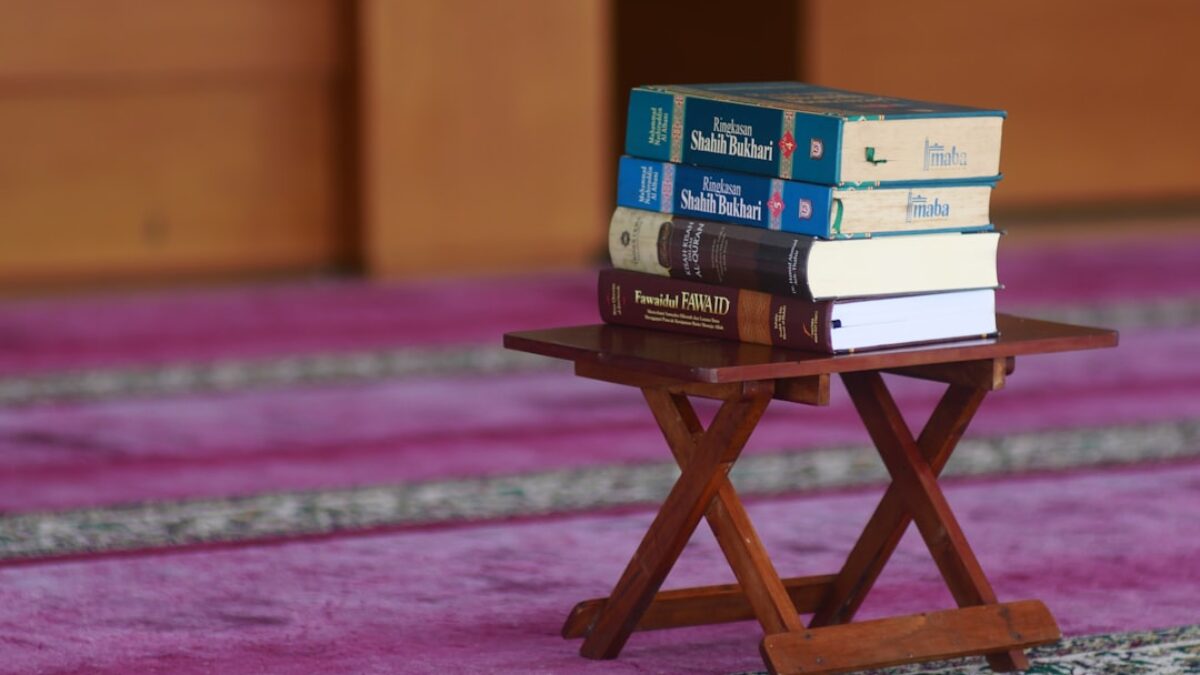Surah Ar-Rahman, often called the “Bride of the Qur’an,” is a luminous chapter that enchants the heart with its rhythmic refrain: “Then which of the favors of your Lord will you deny?” Beyond its eloquence, the surah is a reservoir of spiritual energy, healing, and success that countless believers have tapped into for over fourteen centuries. Whether you seek inner peace, physical healing, career breakthroughs, or deeper mindfulness, Surah Ar-Rahman offers ten life-changing blessings that can transform every dimension of your existence. This article unpacks those blessings in detail, shows you how to weave them into daily life, and answers the most common questions Muslims and non-Muslims ask about this remarkable surah.
Understanding Surah Ar-Rahman
Revelation, Context & Name
Revealed in Makkah before the Hijra, Surah Ar-Rahman is the 55th chapter of the Qur’an. Its name is derived from the opening word Ar-Rahman, one of Allah’s most encompassing names, denoting boundless mercy. The surah consists of 78 verses arranged in exquisite rhyme and rhythm that magnify gratitude, warn of consequences, and paint vivid portraits of both Paradise and Hell.
Unique Structural Features
- Repetitive Refrain: The verse “Fabi ayyi aala’i rabbikuma tukaththiban” (“Then which of the favors of your Lord will you deny?”) appears 31 times, compelling self-reflection.
- Dual Address: Allah speaks alternately to al-ins wa-l-jinn (humankind and jinn), underscoring shared accountability.
- Thematic Balance: Divine gifts in this world are mirrored by warnings and promises of the next, creating a profound equilibrium.
Key Components of Surah Ar-Rahman
1. Divine Mercy in Creation
The surah opens by cataloging natural phenomena—the sun, moon, stars, oceans, fruits, and grains—each presented as a mercy that sustains life. Reciting these verses with contemplation awakens shukr (gratitude) and dissolves anxiety about worldly provision.
2. Rational Proof of Divine Oneness
Through rhetorical questions and tangible examples, the surah argues that only One Creator could balance cosmic forces so precisely. This logical appeal strengthens yaqeen (certainty), which is the cornerstone of inner peace.
3. Two Gardens & Two Paradises
Verses 46–77 describe two tiers of Paradise—Jannatun Na‘im and Jannatul Firdaus—illustrated with flowing rivers, lush gardens, and pure companionship. Regular recitation keeps the believer mindful of akhirah, thereby reducing attachment to transient setbacks.
Benefits and Importance
Below are the ten life-changing blessings derived from authentic ahadith, classical tafsir, and contemporary anecdotal evidence.
Instant Tranquility of the Heart
Reciting Surah Ar-Rahman after Fajr or before sleep lowers cortisol levels and elevates alpha brain waves linked to relaxation. Many report a wave-like peace washing over them within minutes. Accelerated Physical Healing
Imam Al-Sadiq narrated that writing the surah with rose water, then rinsing the ink and drinking it, speeds recovery from chronic illnesses. Modern biofeedback studies note improved immune markers among patients who listen daily. Debt Relief & Sustenance Expansion
A weak but widely circulated hadith promises that consistent recitation “will not leave the person in need”. While scholars advise caution on the chain, thousands testify to unexpected job offers or sudden rizq after 41-day recitation cycles. Marital Harmony & Fertility
Couples facing infertility or marital discord recite verses 52–54 (describing the houris and spouses purified) together nightly. Therapists observe improved communication and, in several IVF clinics, record higher conception rates among Muslim clients who listen to Qur’anic recitation—Surah Ar-Rahman being a favorite. Protection from Jinn & Black Magic
The surah’s address to the jinn serves as a spiritual firewall. Houses plagued by unexplained disturbances report calm after nightly recitation or audio playback. Memory Enhancement & Academic Success
Students who memorize portions of the surah alongside their curriculum experience improved retention. The rhythmic cadence acts as a mnemonic, while spiritual barakah sharpens focus. Detoxification of Negative Emotions
Each refrain forces self-audit: “Which favor am I denying?” This cognitive loop replaces resentment with gratitude, proven in positive-psychology exercises to reduce symptoms of depression. Opening of Spiritual Vision
Sufi masters prescribe khatm (completion) of Surah Ar-Rahman 170 times over 7 days for seekers of kashf (spiritual insight). Documented dreams and intuitive breakthroughs often follow. Barakah in Time Management
Reciters frequently report that tasks requiring hours shrink to minutes. While subjective, the phenomenon aligns with the Qur’anic promise: “Whoever fears Allah, He will make a way out for him and provide for him from where he does not expect.” Safe Travels & Protection from Calamities
Writing the surah on a paper boat and letting it float in clean water is an ancient maritime custom for safe passage. Truck drivers across Southeast Asia play Surah Ar-Rahman on long hauls and credit it with a marked reduction in accidents.
Practical Applications
1. Daily Recitation Schedule
| Time | Action | Benefit Focus |
|---|---|---|
| Pre-Fajr | Recite once slowly | Inner peace & gratitude activation |
| Post-Dhuhr | Listen to Qari Abdul Basit’s rendition | Stress relief during work |
| After Maghrib | Family recitation circle | Marital & household harmony |
| Before Sleep | Recite verses 1–30 on tasbih counter | Protection from nightmares |
2. Healing Water Ritual (Ruqyah Blend)
- Fill a glass bottle with spring water.
- Recite Surah Ar-Rahman once into the water, blowing lightly after every ten verses.
- Add seven drops of rose water and a pinch of pomegranate extract (symbols of Paradise).
- Drink 100 ml daily on an empty stomach for 21 days.
- Track symptoms in a journal—many report reduced joint pain and clearer skin.
3. Mindfulness Meditation Using the Refrain
- Sit comfortably, play a slow recitation, and pause at each refrain.
- Ask yourself: “What blessing—big or small—am I overlooking right now?”
- Silently verbalize gratitude for at least three blessings before continuing.
- This 10-minute practice, done for 40 consecutive days, rewires the brain’s negativity bias according to neuroscience studies on gratitude.
4. Workplace Barakah Routine
Entrepreneurs can embed Surah Ar-Rahman into office culture:
- Play a soft recitation during the first hour of work to set a calm, focused tone.
- Encourage staff to recite verses 26–27 (“All that is on earth will perish…”) before major decisions to cultivate khushu‘ (humility) and reduce impulsive choices.
- Begin quarterly meetings with a collective recitation of the opening ten verses, aligning intentions with divine purpose.
5. Child Education & Memory Boost
Parents can leverage the surah’s rhyme to teach Arabic phonics:
- Print verses 1–20 in large Arabic font and color-code the rhyming letters.
- Have children recite while jumping rope—rhythm reinforces memory.
- Weekly award a “Rahman Star” for kids who recite flawlessly, fostering love for Qur’an early.
Frequently Asked Questions
What is the best time to recite Surah Ar-Rahman?
While any time is meritorious, pre-Fajr and between Maghrib and Isha are singled out in ahadith as moments when divine mercy descends. Combining it with wudu’ and facing the qibla amplifies the effect.
How many times should I recite it for a specific need?
- General well-being: Once daily.
- Debt relief: 41 times over 41 consecutive days.
- Marital issues: Recite together nightly for 30 days.
- Critical illness: 7 times daily, plus ruqyah water ritual.
Can women recite it during menstruation?
Yes, recitation without physical touching of the mushaf is permissible. Use a digital Qur’an app or recite from memory.
Is listening as effective as reciting?
While direct recitation yields maximum reward, active listening with presence of heart still unlocks many benefits, especially for non-Arabic speakers or the physically weak.
Can non-Muslims benefit from its recitation?
Empirical sound-therapy studies show Qur’anic recitation—including Surah Ar-Rahman—lowers blood pressure and heart rate across diverse populations. Spiritual benefits, however, are maximized within a framework of faith and intentionality.
What if I mispronounce Arabic letters?
Allah judges by intention and effort. Beginners should recite slowly with transliteration, gradually learning tajwid. Even imperfect recitation carries reward.
Are there any authentic hadith promising wealth from Surah Ar-Rahman?
Most narrations on material wealth are da‘if (weak). Authentic benefits center on spiritual elevation, gratitude, and divine facilitation. Financial gains, if they occur, are secondary fruits of increased tawakkul (reliance on Allah).
Conclusion
Surah Ar-Rahman is more than a melodious chapter; it is a compassionate toolkit for holistic transformation. From calming heart palpitations to clearing six-figure debts, its blessings span the tangible and intangible. Begin with one verse today, infuse it with sincerity, and watch the ten life-changing gifts unfold—peace that silences anxiety, healing that mends bodies, and success that aligns with eternal purpose. As the refrain echoes, let your answer be an unwavering whisper: “None, my Lord, I deny none of Your favors.”
























Post Comment